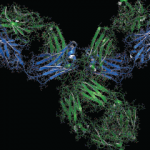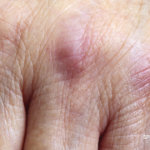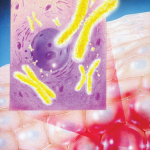Sendaydiego et al. asked: Do some DMARDs pose a greater cancer risk than others for patients with RA? Here are insights from the study and its clinical implications.


Sendaydiego et al. asked: Do some DMARDs pose a greater cancer risk than others for patients with RA? Here are insights from the study and its clinical implications.
Brooks et al. evaluated the risk of lung cancer in patients with rheumatoid arthritis (RA) and RA-associated interstitial lung disease (ILD) compared with the risk in matched controls without RA or RA-ILD. Understanding whether RA predisposes someone to lung cancer and whether patients with RA-ILD represent a uniquely high-risk group could inform cancer-screening strategies.
In this study, researchers set out to determine the prevalence of baseline risk factors for cardiovascular outcomes and cancer among commercially insured patients with rheumatoid arthritis during their first dispensed treatment.

In Canada, a subcutaneous formulation of CT-P13, which is biosimilar to infliximab, was approved to treat rheumatoid arthritis.

Recent research reinforces the finding that psoriasis patients have a slightly increased risk of cancer, specifically keratinocyte cancer and lymphomas. However, the study found no association between cancer and the use of biologic treatments in this patient population…

Cancer and autoimmunity have a complex relationship. In a presentation, Ami Shah, MD, MHS, discussed how to use autoantibodies as tools for cancer risk stratification, how to approach cancer screening in individuals with new-onset disease and more…
Julie Steenhuysen |
CHICAGO (Reuters)—Cancer patients with COVID-19 who were treated with a drug combination promoted by U.S. President Donald Trump to counter the coronavirus were three times more likely to die within 30 days than those who got either drug alone, U.S. researchers reported on May 28. The preliminary results suggest doctors may want to refrain from…

CHICAGO—The body of literature on immunosuppressive drugs used to treat cancer and autoimmune diseases is growing, helping bring some clarity to their effects on the immune system and how well they work in patients. This has helped refine the questions that further research must answer, said an expert at the 2018 ACR/ARHP Annual Meeting. The…

Osman Bhatty, MD, Rouhin Sen, MD, & Joseph Nahas, MD |
Since it was first reported in 1916, a correlation between inflammatory myopathies and cancer has been noted in several studies. Population studies have confirmed this relationship, and the phrase cancer-associated myopathy has entered the vernacular. Over the past decade, research efforts have shifted toward revealing associations between autoantibodies and clinical phenotypes. One subset of auto-antigens…

Recent studies point to a relationship between scleroderma and autoantibodies (e.g., anti-RNA polymerase III or anti-RNPC3), and an increased cancer risk within a short interval of scleroderma onset. Mechanistic studies provide further evidence that cancer may trigger scleroderma in patients with these autoantibodies. However, many questions remain unanswered. A study in the Annals of the…